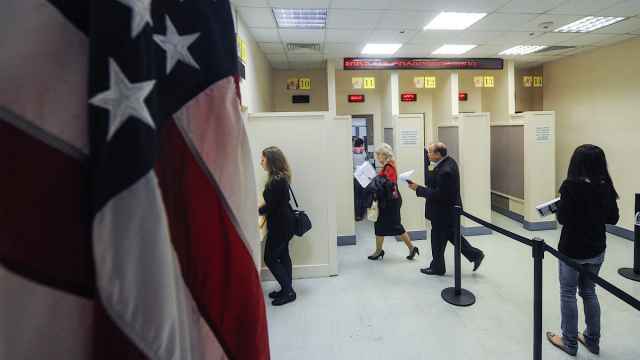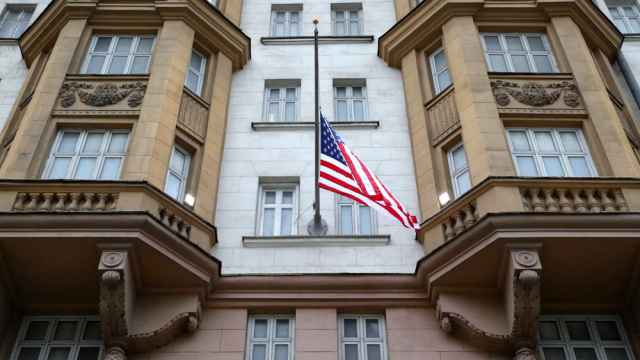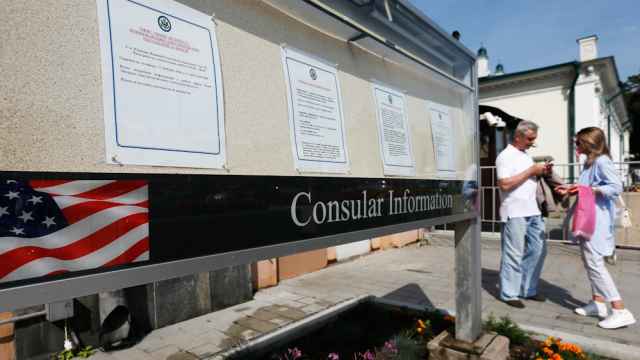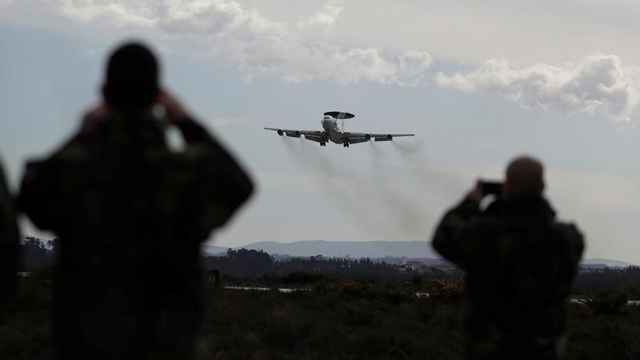Russians hoping to apply for an immigrant visa to the United States are now required to travel to the U.S. Embassy in Warsaw, the State Department confirmed Sunday, while blaming restrictions imposed by Moscow.
That development came amid unresolved U.S.-Russian tensions, and tit-for-tat expulsions that earlier led Moscow to limit the number of U.S. diplomatic staff in Russia.
The U.S. visa move, in effect since Oct. 12, prompted a heated rejoinder from Foreign Ministry spokeswoman Maria Zakharova.
American diplomats, she wrote on the Telegram platform, had long been "destroying" the consular services system in Russia, turning what should be a routine, technical procedure "into a real hell."
The State Department, for its part, pinned the blame squarely back on Moscow.
"The Russian government's decision to prohibit the United States from retaining, hiring or contracting Russian or third-country staff severely impacts our ability to provide consular services," a State Department spokesman said in a statement received by AFP.
"The extremely limited number of consular staff in Russia at this time does not allow us to provide routine visa or U.S. citizen services."
It added: "We realize this is a significant change for visa applicants," and it cautioned them not to travel to Warsaw before booking an appointment with the embassy there.
The statement recognized that the shift to Warsaw, which took effect this month, was not an "ideal solution."
It added: "we considered a number of factors including proximity, availability of flights, convenience for applicants..., the prevalence of Russian speakers among our locally engaged personnel, and the availability of staff."
Warsaw is around 1,200 kilometers (750 miles) from Moscow.
On the State Department website, Russia has been added to a short list of countries where "the United States has no consular representation or in which the political or security situation is tenuous or uncertain enough" to prevent consular staff from processing immigrant visa applications.
Most countries on that list have poor or no direct relations with the U.S., including Cuba, Iran, Syria, Yemen and Venezuela.
Amid a continuing dispute over how many diplomats each side can post in the other's country, Russia has placed the U.S. on a list of "unfriendly" countries requiring approval to employ Russian nationals.
Russian applicants for nonimmigrant visas can still apply at any overseas U.S. embassy or consulate so long as they are physically present in that country, the U.S. statement said.
Meantime, the U.S. Embassy in Moscow will be able to process only "diplomatic or official visas."
Successive rounds of tit-for-tat diplomatic expulsions by the two countries have left embassies and consulates badly understaffed, playing havoc with normal services.
This was a central subject of talks two weeks ago during a Russia visit by Victoria Nuland, the undersecretary of state for political affairs, but little progress was announced.
A Message from The Moscow Times:
Dear readers,
We are facing unprecedented challenges. Russia's Prosecutor General's Office has designated The Moscow Times as an "undesirable" organization, criminalizing our work and putting our staff at risk of prosecution. This follows our earlier unjust labeling as a "foreign agent."
These actions are direct attempts to silence independent journalism in Russia. The authorities claim our work "discredits the decisions of the Russian leadership." We see things differently: we strive to provide accurate, unbiased reporting on Russia.
We, the journalists of The Moscow Times, refuse to be silenced. But to continue our work, we need your help.
Your support, no matter how small, makes a world of difference. If you can, please support us monthly starting from just $2. It's quick to set up, and every contribution makes a significant impact.
By supporting The Moscow Times, you're defending open, independent journalism in the face of repression. Thank you for standing with us.
Remind me later.






